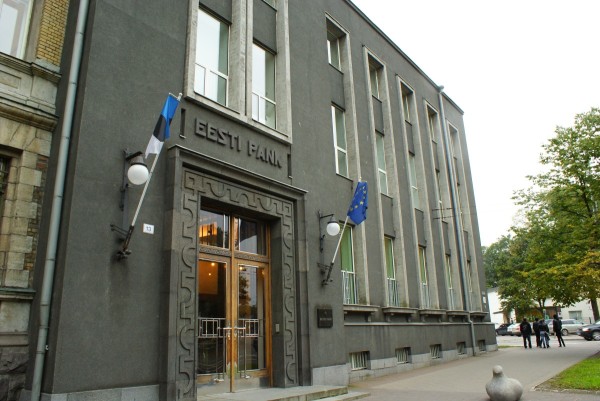Ingrid Teesalu, ERR News
It is unlikely that events similar to the Bronze Soldier riots, which shook the nation exactly five years ago, will ever occur in Estonia again, Marju Lauristin, professor of social communication at the University of Tartu said.
On April 26, 2007, the government ordered relocation of the statue of the Bronze Soldier – a symbol of the Red Army's victory over Nazi Germany for the many in the Russian-speaking community – from its location in downtown Tallinn to a military cemetery. The move was initiated by the government and supported by a large part of the Estonian-speaking population who saw it as a brutal remainder of the Soviet power.
According to Lauristin, the integration reforms carried out in in Russian-language schools have over the last five years been so profound that their impact is already irreversible, canceling the likelihood of similar riots ever taking place in Estonia again.
Although the relocation of the monument was a strong emotional shock for the Russian-speaking community, studies suggest that most have managed to put the events in the past, said Lauristin, adding that another important aspect is that the riots kick-started a dialogue between the two communities. Also it made the ethnic Estonian population realize more profoundly the necessity of engaging minorities into the society, she said.
The large-scale cyber attacks against Estonia that followed the riots, turned Estonia into a world-renowned opinion leader and pathfinder in the field of cyber security, Lauristin said. Trust in Prime Minister Andrus Ansip and his Reform Party also spiked after the riots, she conceded.
Research has also shown that the event caused no backlash in trade relations between Estonia and Russia, but rather served as boost, with export to Russia having grown 15 percent in 2007.
Today at 19:00, a group of activists will hold a sanctioned public meeting on Tallinn's Freedom Square to commemorate the 2007 events. Approximately 100 people are expected to attend.
5 Years Later: Bronze Soldier Riots Not Likely to Occur Again, Says Professor (2)
Eestlased Eestis | 26 Apr 2012 | EWR
Viimased kommentaarid
Kommentaarid on kirjutatud EWR lugejate poolt. Nende sisu ei pruugi ühtida EWR toimetuse seisukohtadega.
I should have specified that the Deputy Mayor of Tallinn is a Russian who is appalled by the bilingualism requirements placed upon Tallinn's secondary schools.
Why can't the Professor of "social communication" communicate?
She could begin by telling us what "social communication" is, and how it differs communication as it's ordinarily understood.
Why can't she specify the "integration reforms" which preclude future riots?
Why does she believe that the Bronze Soldier is a symbol of Soviet power? To most, it looks like a symbol of Soviet occupation, oppression and Russification; particularly, in contrast to British and American power, which also played a role in defeating the Nazis, then went home.
The dialogue between the Estonian and Russian communities proceeds in Russian. Were told that Estonia should be bilingual; in effect, so that the Russians don't have to be. Check with the Deputy Mayor of Tallinn who, just last week, told us that he's appalled by the shame of it all.
She could begin by telling us what "social communication" is, and how it differs communication as it's ordinarily understood.
Why can't she specify the "integration reforms" which preclude future riots?
Why does she believe that the Bronze Soldier is a symbol of Soviet power? To most, it looks like a symbol of Soviet occupation, oppression and Russification; particularly, in contrast to British and American power, which also played a role in defeating the Nazis, then went home.
The dialogue between the Estonian and Russian communities proceeds in Russian. Were told that Estonia should be bilingual; in effect, so that the Russians don't have to be. Check with the Deputy Mayor of Tallinn who, just last week, told us that he's appalled by the shame of it all.
Eestlased Eestis
TRENDING
























